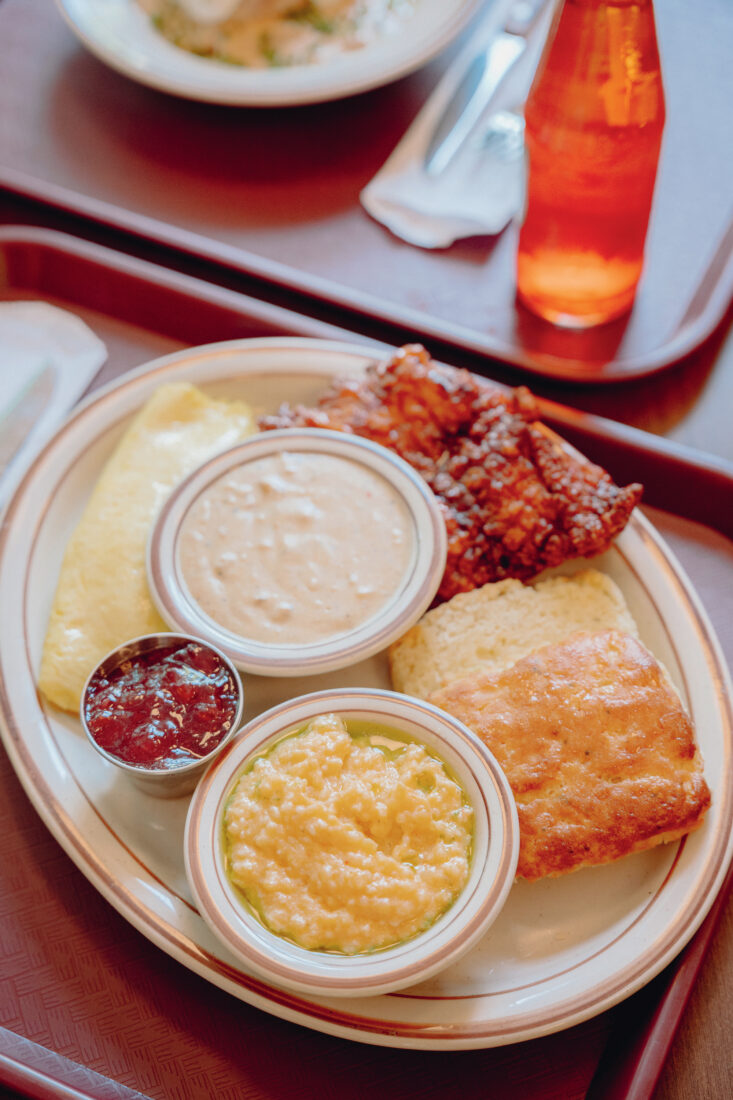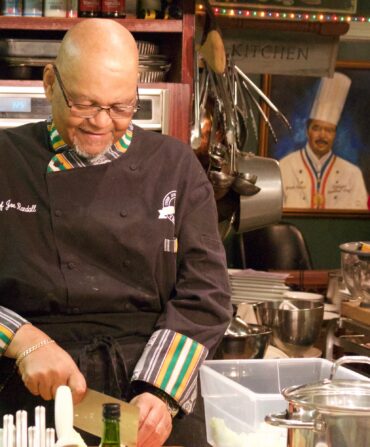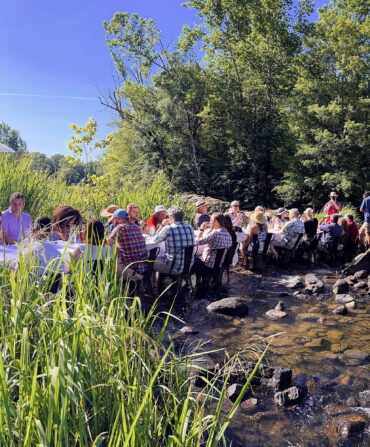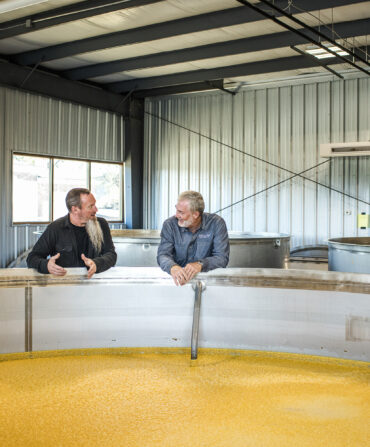My sausage biscuit arrives with a bullet of house-made strawberry jam. Before the square of dough went in the oven, a cook shellacked it with egg wash to give the outside crunch and structure. After it emerged golden and smelling faintly of herbes de Provence, another cook brushed the top with honey and scattered salt flakes that now sparkle in the light of overhead globes. I pull silverware from a crinkly paper sleeve as a fuchsia-haired waitress glides through the room. The man in the next booth wears a Stax Records T-shirt and sips coffee from a mug with a yolk-colored logo and the slogan KINFOLK, BUSY BURNIN’ DAYLIGHT.
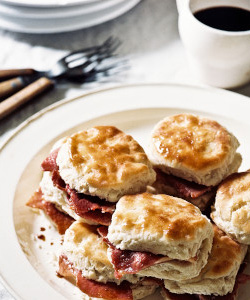
That biscuit costs eight dollars, more than your father paid for a sausage biscuit, and probably more than you and I were willing to pay five years ago for such an elemental artifact of Southern identity. Chef and co-owner Cole Jeanes, who opened Kinfolk in March in Memphis—in a neighborhood called Harbor Town on a Mississippi River peninsula opposite downtown—says his biscuit is worth every quarter. After five meals this summer over three weeks, I’m with him, all the way.
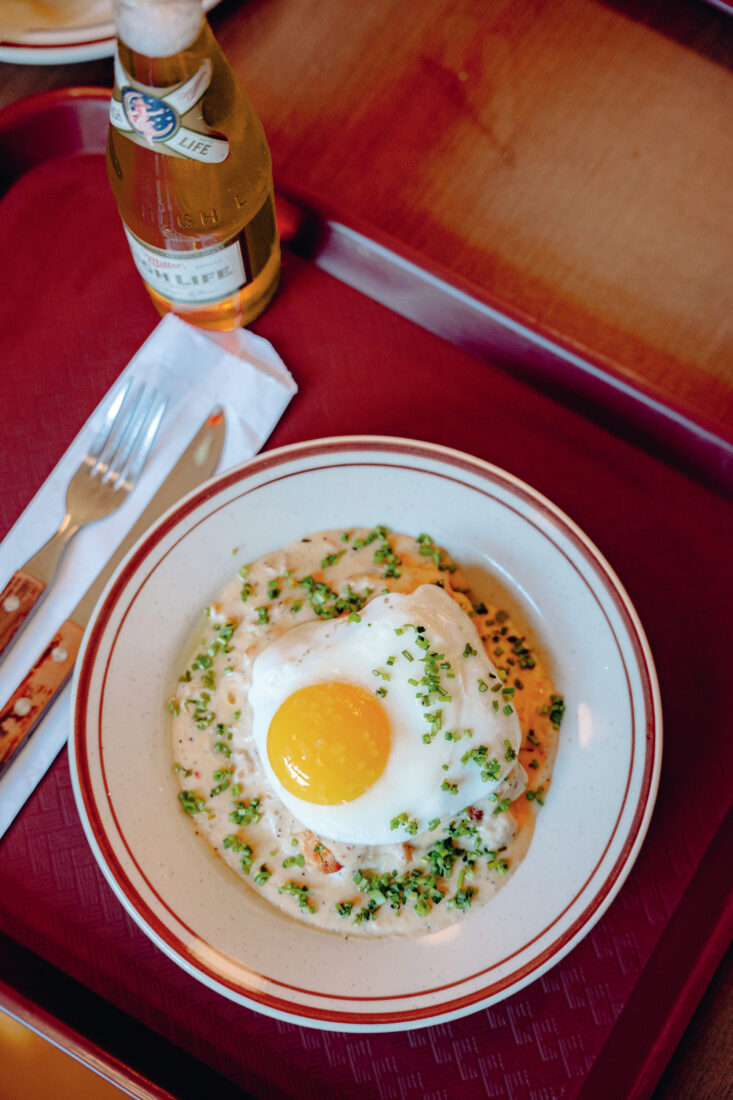
The look at Kinfolk suggests a Waffle House that jumped the fence. Plywood booths line a walnut-walled shoebox of a restaurant. Six stools, upholstered in a neon-bright tartan plaid, face a dogleg-shaped counter. Merch by the door includes locally roasted Bloodhound coffee, packed in camouflage bags, and caps that combine a cartoon image of a bacon-egg-and-cheese biscuit and the emblem for Bass Pro Shops. On the stereo, Helen Reddy sings of a forty-one-year-old woman whose daddy still calls her baby, and, in a quick sketch of Jeanes’s teenage years, Merle Haggard names the ways that Mama tried.
“I pictured an old man in a booth, a deer head mounted above, eating breakfast,” Jeanes tells me when we talk about how his restaurant came to be. I flash to the country stores of my childhood, where biscuits came wrapped in tissue imprinted with grease stains shaped like the fingers of the cooks, and I think of photographers like Kate Medley and Jerry Siegel, who document the kinds of places that serve as crossroads for people of many backgrounds and beliefs.
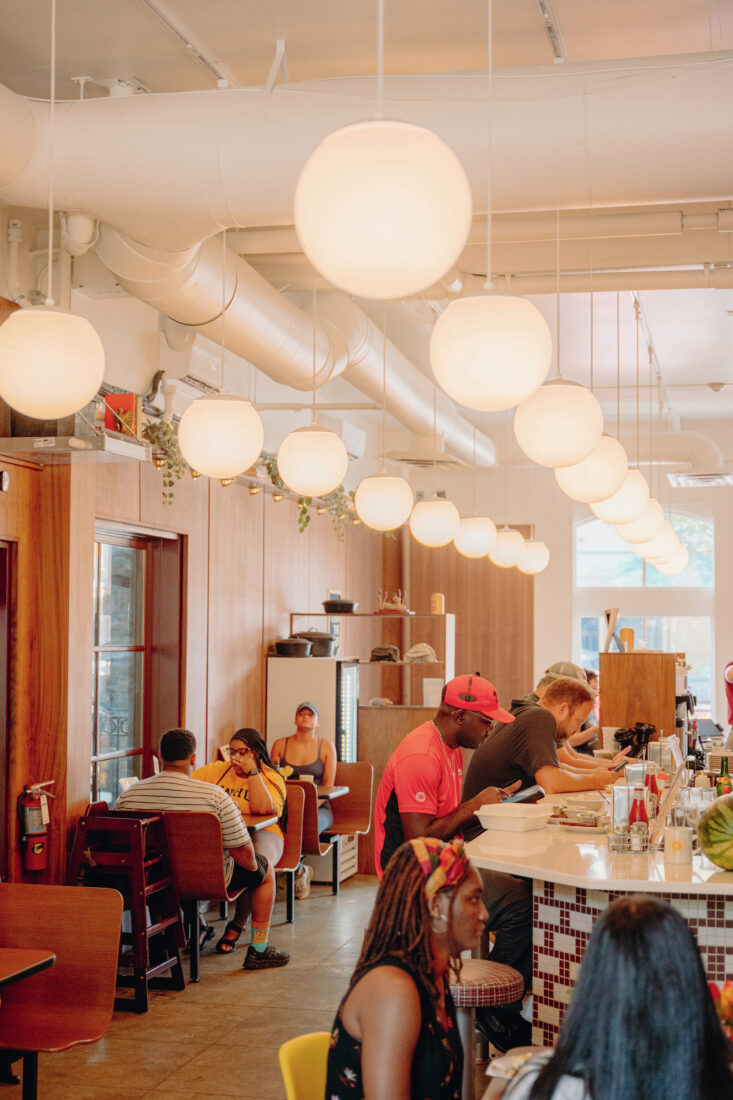
Their photos sometimes play across my field of vision like elegies. That’s part of what makes Kinfolk a powerful place to eat. This restaurant is a contemporary celebration of those everyday clubhouses, a place where Jeanes and his colleagues channel nostalgia and personal histories, sampling the country South their parents knew and the suburban South of their childhoods, too.
Laura Nell Jeanes, the mama who tried, raised Cole by herself from when he was twelve. He was an early drinker, a hellion. He’s now married, with two young children, but he still projects a wild-child look. His mother, who patted out buttermilk biscuits and stuffed them with sausage patties, inspired the ones he now bakes. So did his father, Randy Jeanes, a native of Tippah, Mississippi, who worked as a taxidermist and firefighter and left the picture too soon.
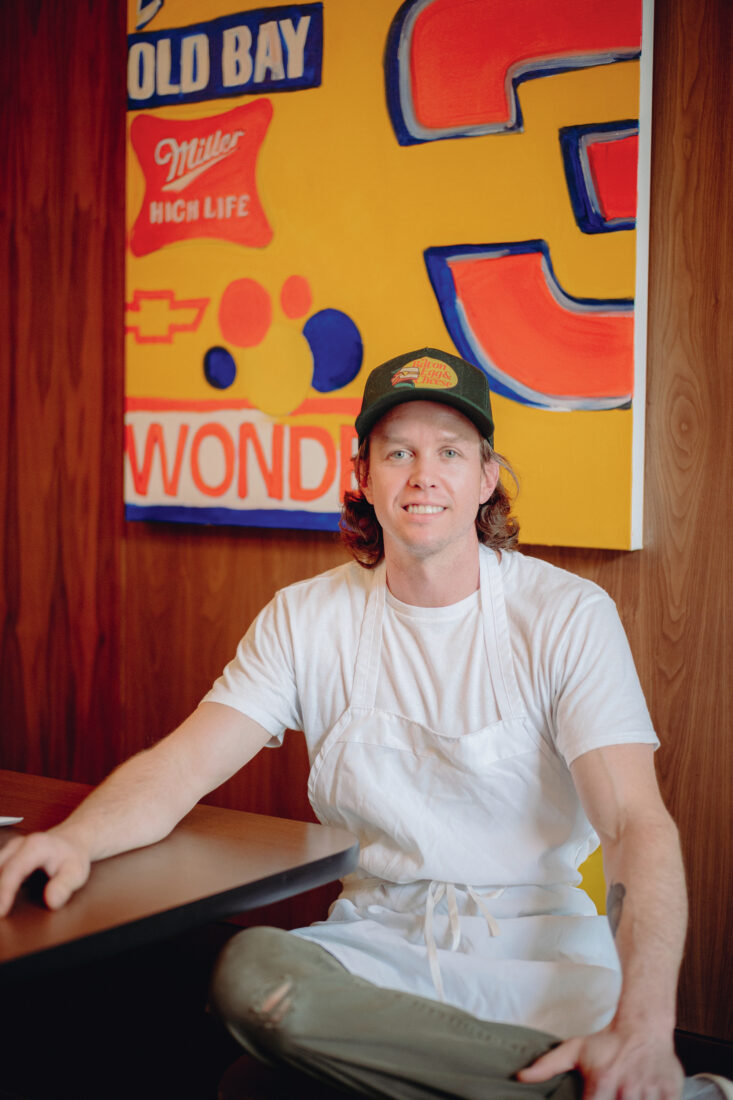
Cole Jeanes killed his first deer when he was nine. He remembers his father’s words that day and the yellow leaves on the trees, speaking of the woods like they were a sanctuary. He talks about gas station cafés as if they were fellowship halls, tracking his obsession to Gurkin’s Quick Stop near Somerville, Tennessee, where he smeared his sausage biscuits with grape jelly and ate them with a cold Yoo-hoo in the cab of his father’s lifted Toyota pickup.
While Jeanes is country at his core, Kinfolk is a city restaurant that runs on modern ideas, borrowed from contemporary chefs. He sources the best ingredients, including small-batch granola from Indu Bakery in Memphis; pork from Home Place Pastures, a five-generation family farm out of Como, Mississippi; and stone-ground heirloom grains from Columbia, South Carolina’s Anson Mills. Before opening Kinfolk, he studied at a culinary school and worked with Andy Ticer and Michael Hudman, two of the most respected chefs in Memphis.
That training shows. In addition to those supernal biscuits, Jeanes turns out French omelets that are perfectly creamy at their cores. For a steak-and-egg special, he prepares a sous vide coulotte and serves it with confit potatoes, bathed in Mornay sauce. The best dish on the menu might be the most modern of all: a bowl of grits, topped with shaved oyster mushrooms, crowned with a sunny-side-up egg, ringed by speckles of chile-garlic crisp.
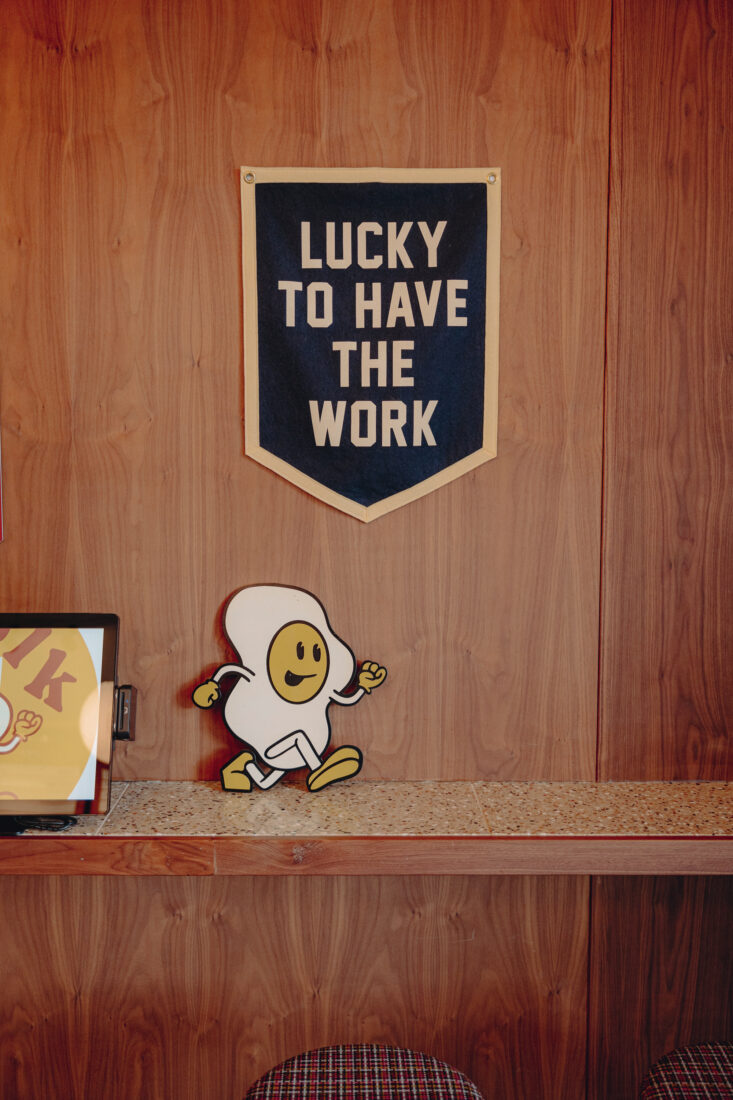
At Kinfolk, though, the past is always present. After I complete my five-breakfast run, Jeanes and I sit at the rear of the restaurant to talk. I ask about the framed firefighter’s jacket trimmed in yellow reflective tape that hangs on the far wall. He answers by talking about the tattoo on his left arm that reads MEMENTO MORI, ancient words that speak to the hubris of the living and translate as “Remember that you must die.”
The jacket belonged to his father, who was thirty-six when he died of cardiac arrest. “I want to run a restaurant that takes you to another time,” says Jeanes, who is now thirty-four. “And I know I’m not the only one who needs that.” He pauses, thinking of the escape restaurants can offer and the responsibility he shoulders. “I’ve got to get it together and get to work,” he says. “I’ve known how short this life is for a long time.”
Plus: Memphis’s Historic Biscuit Bastion
A morning stop at Bryant’s
Opened in 1968, Bryant’s Breakfast started as a barbecue restaurant and evolved into a biscuit joint and a Memphis institution. It’s a democratic space: Police officers, drinking coffee in foam cups, stand in line at the high-top counter to order pork tenderloin biscuits. Retirees, balancing on walkers, file in to eat flattop-blackened bologna biscuits. For my sausage biscuit, instead of jelly, I follow the lead of a guy ahead of me in line and spread gravy on the underside of the crown like a condiment.
John T. Edge, writer and host of the television show TrueSouth, began contributing to Garden & Gun in its first year of publication. He is the author of The Potlikker Papers: A Food History of the Modern South and House of Smoke.


